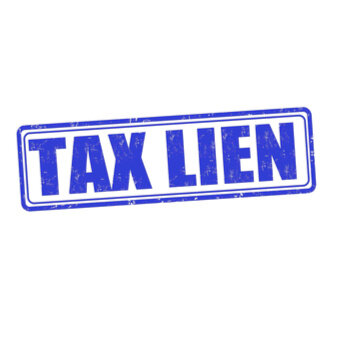Overview Of Real Estate Tax Delinquency Laws In Texas
When it comes to selling a property in Texas with delinquent taxes, homeowners must be aware of the state’s real estate tax delinquency laws. It is important to understand that any taxes not paid within a certain period (usually one or two years) will become delinquent and that current taxes have priority over all other liens.
Additionally, if unpaid taxes remain delinquent for five years, the taxing authority has the right to sell off the property to recover their money. Homeowners should also be aware of any additional penalties or interest fees they may incur due to non-payment of taxes.
Furthermore, homeowners must be familiar with any special exemptions or discounts available when paying off delinquent taxes. Finally, it is important to note that a homeowner cannot transfer ownership of a property if delinquent taxes are outstanding on it.
Table of Contents
1. Overview Of Real Estate Tax Delinquency Laws In Texas
2. What To Consider Before Bidding On A Property With Back Taxes
3. How To Research And Prepare For Buying Property With Delinquent Taxes
4. What Are Resolution Properties And How Do You Purchase Them?
5. Options For Redeeming Your Home After Being Sold At A Texas Property Tax Sale
6. Exploring The Redemption Period After A Texas Tax Sale Is Finalized
7. Tips For Selling A Property With Unpaid Property Taxes In Texas
8. Strategies For Protecting Yourself When Purchasing A Home With Unpaid Real Estate Taxes
9. What Are The Benefits Of Purchasing A Property With Tax Liens?
Understanding The Different Types Of Tax Sales

In this case, rather than take possession of the land, the county will place a deed restriction lien on the property until all unpaid taxes have been paid off. Understanding these different types of tax sales can help homeowners make informed decisions when selling their property in Texas with delinquent taxes.
Finding Properties With Delinquent Taxes In Your Area
Selling property in Texas with delinquent taxes can be daunting, but with the right guidance, it is possible to find properties with delinquent taxes in your area. Start by researching online resources such as county tax records and local newspapers for listings of properties with unpaid taxes.
You may also want to contact a real estate attorney or certified public accountant (CPA) for assistance understanding the complexities of delinquent taxes in your state. Once you have identified a potential property, investigate the owner’s current status and any liens that may be associated with the property.
If there are no liens, contact the owner to discuss payment options for the delinquent taxes and negotiate appropriate terms. Be sure to have an attorney review all documentation before signing any agreements or making a purchase.
Additionally, you will need to consider other costs, such as transfer fees and closing costs, when purchasing a property with delinquent taxes in Texas. With careful research and negotiation, it is possible to acquire properties with delinquent taxes at reasonable prices; however, before making any decisions, consult a professional for advice on selling property in Texas with delinquent taxes.
What To Consider Before Bidding On A Property With Back Taxes
When bidding on a property with delinquent taxes in Texas, several factors must be considered before making an offer. One of the first steps is to understand what taxes are considered delinquent and how much is owed.
It is important to research the property’s current market value, including any improvements made since it was purchased. Additionally, it is important to consider any potential future costs associated with maintaining the property, such as HOA fees or special assessments.
Furthermore, homeowners should assess their own financial situation and determine if they can afford to pay all outstanding debts associated with the property in one lump sum or if a payment plan would be more feasible. Lastly, homeowners must be aware of any local regulations that may impact their ability to purchase a home with delinquent taxes in Texas.
Benefits Of Buying Property With Delinquent Taxes In Texas
When buying a property with delinquent taxes in Texas, homeowners have many benefits. Firstly, purchasing the property at a discounted rate is often possible as the previous owner may have failed to pay their taxes.
This allows buyers to invest in a great deal and potentially turn it into a lucrative investment over time. Additionally, once the new owner has paid off the unpaid taxes, they will gain the full title of the property – providing them with long-term security and peace of mind.
Furthermore, if you are looking for an affordable home or investment opportunity in Texas, buying a property with delinquent taxes can help you find one within your budget. Finally, you’ll also be helping out your local community by ensuring that taxes get paid on time – preventing further delinquency.
How To Research And Prepare For Buying Property With Delinquent Taxes

Researching and preparing to buy a property with delinquent taxes in Texas can be daunting. To ensure a successful purchase, it is important to understand the state’s tax laws and regulations, the county tax collection process, and any special considerations that may be applicable to the specific property.
Homeowners should begin by contacting their local county tax office or appraisal district for more information on delinquent taxes and related processes. Additionally, it is important to research past property owners and any current liens or deeds of trust on the property.
This will help homeowners understand if any associated costs must be paid before closing. Finally, it is essential to obtain an appraisal of the property so that buyers know its true value and can decide whether buying with delinquent taxes is cost-effective for them.
Navigating The Process Of Paying Off Delinquent Taxes On A Property
Selling property in Texas with delinquent taxes can be a difficult and stressful process for homeowners. Understanding the steps to pay off arrearages is key to navigating this scenario successfully.
It’s important to start by researching the amount of delinquent taxes owed on the property and any associated penalties and interest. Once an accurate amount is determined, homeowners may need to contact the county tax office responsible for collecting these fees.
The county will provide information on payment options, such as installment plans or lump sum payments. Furthermore, they may have resources available that can help bring down total costs associated with delinquent taxes.
Homeowners should always look into potential assistance options before making any payments or attempting to sell their property. As a last resort, if all other efforts fail, it may be necessary to negotiate a tax sale with a third-party buyer who would assume the responsibility of paying off delinquent taxes in exchange for a discounted price on the home.
Navigating the process of paying off delinquent taxes on a property in Texas requires research and planning so that homeowners can make informed decisions when selling their homes.
What Are Resolution Properties And How Do You Purchase Them?

When it comes to purchasing property in Texas with delinquent taxes, one of the options available to homeowners is resolution properties. Resolution properties refer to a parcel of land that has been identified as having unpaid taxes and put up for sale by the county.
The goal of this sale is for the county to recuperate some of its lost tax revenue. Homeowners who are interested in buying resolution properties need to be aware that these sales can be competitive, and they may need to act quickly to make sure they get the property they
Furthermore, buyers should also understand that purchasing a resolution property involves more than just paying back taxes and fees; they must also pay all other expenses associated with the transfer of ownership, such as title search fees and closing costs. Additionally, there may be restrictions on how resolution properties can be used or developed, so buyers should consider their intended use before making an offer on a particular property.
How To Submit Payment For A Property With Back Taxes Owed
When selling a property in Texas with delinquent taxes, submitting payment for the back taxes owed is essential. Homeowners should start by obtaining a copy of their tax statement from the county or district assessor-collector’s office to determine the amount due.
If there are multiple owners on the title, all must agree to pay the back taxes, or there may be repercussions that could prevent the sale from going through. Once all parties have agreed on how to move forward, payment can be submitted electronically via credit or debit card, e-check, or a wire transfer.
Alternatively, mail payments can also be made through certified funds such as money orders and cashier’s checks. Regardless of which method is used, homeowners should always keep their receipt for confirmation that they have paid off their delinquent taxes and remain in compliance with Texas law.
Options For Redeeming Your Home After Being Sold At A Texas Property Tax Sale
When selling property in Texas with delinquent taxes, homeowners have various options for redeeming their home after it has been sold at a Texas property tax sale. One of the most popular options is to pay the full amount of the taxes due, including interest and fees, plus any costs associated with the sale.
Another option is to agree with the purchaser to pay off the taxes over time; this allows homeowners to reclaim their homes without having to pay all of the money upfront. Additionally, if a homeowner can prove that they were not given proper notice of the sale or that there was a mistake made in calculating taxes owed, they may be able to have the sale reversed.
Homeowners may also qualify for an exemption from paying taxes on their homes if they meet certain criteria. Lastly, homeowners who are unable to redeem their home after it has been sold at a Texas property tax sale may still be able to purchase it back from the purchaser.
Although this might require some negotiation, homeowners can reclaim their property even in these difficult situations.
Understanding Your Rights Regarding Redeeming Your Home Before A Tax Sale In Texas
As a homeowner in Texas, you have certain rights regarding delinquent taxes on your property and the potential of a tax sale. It is important to understand the process and your options before any action is taken so that you can make an informed decision about redeeming your property.
Some steps must be taken by the county in order to legally conduct a tax sale, such as providing public notice, setting minimum bid amounts, and collecting all past-due taxes and fees. You may also have the right to redeem your home within a certain amount of time after the sale has occurred.
Knowing how to request redemption from the county and how much you need to pay can help ensure your property is not lost forever. Additionally, if you can prove financial hardship or that extenuating circumstances caused it, you may be able to set up a payment plan with the county or even reduce the amount owed.
Taking advantage of these rights and understanding how they work can help Texas homeowners maintain ownership of their properties despite delinquent taxes.
Exploring The Redemption Period After A Texas Tax Sale Is Finalized
Owning a home in Texas can be an exciting experience, but staying informed about the tax laws is important. When delinquent taxes go unpaid, the property and its associated taxes can be sold at a public auction.
After the sale is finalized, Texas law requires that homeowners have a redemption period in which they can reclaim their property and pay off any remaining taxes. Understanding this process is essential for anyone looking to sell property in Texas with delinquent taxes.
The first step when redeeming a property after a tax sale is to determine if the redemption period has expired. If it has not yet expired, then the homeowner must figure out how much money they will need to pay to redeem their property and any outstanding taxes due.
This amount includes all applicable penalties and interest accrued since the beginning of the foreclosure process. Once this total amount has been calculated, it must be paid within the allotted time frame, or else the redemption process cannot continue, and ownership of the home will transfer to its new owner.
Tips For Selling A Property With Unpaid Property Taxes In Texas
Selling a property with delinquent taxes in Texas can be tricky, especially if you have never done it before. The first step is to research your local tax laws and determine how much you must pay for unpaid taxes.
Once you have all of the necessary information, you should contact your local county or city tax office and inquire about payment options. It is important to obtain any necessary documentation from the office so that you have proof of payment.
Additionally, some counties may offer alternatives such as payment plans or reduced interest rates on late payments. After ensuring that all taxes are paid, you can proceed with listing the property and selling it.
When marketing your property, make sure to inform potential buyers that the taxes have been paid in full so that they know exactly what they are purchasing. Furthermore, it is important to include a clause in the sales contract stating that all taxes must be paid by the buyer prior to closing.
Following these tips can help ensure a smooth transaction when selling a property with delinquent taxes in Texas.
Potential Risks Involved When Buying A Home With Unpaid Property Taxes
When buying a home with unpaid property taxes, there are potential risks that must be taken into consideration. There may be significant financial obligations when purchasing a home with delinquent taxes in Texas, such as owing the back taxes and any associated penalties or interest.
Depending on the amount owed, there could also be an auction of the home if no agreement is made between the homeowner and local government. Additionally, it is important to understand that if you cannot make timely payments on the delinquent taxes following the purchase of a home in Texas, your right to ownership could be revoked.
It is, therefore, essential to carefully weigh all potential risks before deciding on whether or not to buy a home with delinquent taxes in Texas.
Potential Penalties Associated With Failing To Pay Off Delinquent Real Estate Taxes In Time
Property taxes are a necessary part of owning real estate in Texas, and it’s important to pay them off in full and on time. Failing to do so can lead to significant penalties, including liens placed on the property, garnishment of wages or bank accounts, and foreclosure if the taxes remain unpaid.
Those who have delinquent taxes may be able to work with their county tax office to establish a payment plan that will allow them to pay off the past due amount without penalty, but any penalties that have already been imposed must still be paid. Homeowners should also note that they may be subject to additional fees for late payments or interest charges when selling a property with delinquent taxes.
It is, therefore wise for homeowners to keep up with their real estate tax bills and ensure they are paid in full before attempting to sell their property.
Knowing If You’re Eligible For Financial Assistance When Paying Off Unpaid Real Estate Taxes
If you own property in Texas and have delinquent taxes, knowing if you are eligible for financial assistance when paying off unpaid real estate taxes is important. Depending on your circumstances, there may be various options available to help with the cost.
Generally, homeowners who are unable to pay their taxes on time due to a temporary financial hardship or low income may be eligible for a payment plan or tax deferral. Additionally, those who have experienced a loss of income due to a natural disaster may be able to receive emergency assistance.
If you are elderly or disabled, additional assistance programs may be available that can provide relief from large tax bills. It is important to contact your local county tax office or the Texas Comptroller’s Office for more information about these programs and see if you qualify.
Exploring Other Payment Plans Or Options For Settling Back Real Estate Taxes Owed
When it comes to settling back real estate taxes owed in Texas, homeowners have a few different payment plans or options available. One option is the Installment Agreement, which allows homeowners to pay their unpaid taxes in installments over a period of time.
The Texas Comptroller must approve this agreement and requires that all future taxes be paid on time. Another option is an Offer in Compromise (OIC) which allows taxpayers to make a one-time payment for less than the full amount owed if they meet certain criteria.
This type of agreement must also be approved by the Comptroller and is based on information such as income, assets, expenses and other financial obligations. Finally, the Tax Payment Plan (TPP) allows taxpayers to make monthly payments towards their delinquent taxes over a set period of time with no interest or penalty accrued if the balance is paid by the end date agreed upon.
While these are some of the options available for settling back real estate taxes owed in Texas, it is important for homeowners to consult with an expert before taking any action. Understanding each option and its implications can ensure that you are making the best decision for your specific situation.
Strategies For Protecting Yourself When Purchasing A Home With Unpaid Real Estate Taxes
When purchasing a property in Texas with delinquent taxes, it is important to be aware of the risks associated and take steps to ensure you are protected. It is wise to perform meticulous research into the current tax situation of any home being considered for purchase and verify that all prior taxes have been paid up to date.
Talk to an experienced real estate agent or lawyer familiar with Texas’s specific laws regarding delinquent taxes, as there may be applicable exemptions and protections in place for buyers. Additionally, make sure you have a clear understanding of how any unpaid taxes will need to be settled before completing the purchase so that you can factor this into your budget.
Lastly, if possible, obtain a title insurance policy that covers potential delinquencies or liens, which could offer financial protection against any unexpected surprises down the road.
What Are The Benefits Of Purchasing A Property With Tax Liens?

Purchasing a property with tax liens can be an incredibly lucrative investment for homeowners in Texas. By purchasing a property with delinquent taxes, investors are able to gain ownership of the real estate while potentially making a profit from the unpaid taxes.
Tax liens provide buyers with several beneficial options, such as taking advantage of competitive interest rates, generating high returns on their investments, and even buying properties below market value. Furthermore, when you purchase a property with tax liens, you are helping to protect your local community by eliminating unpaid back taxes that would otherwise remain burdensome for the state of Texas.
As an added bonus, you may also receive additional credits or reductions in assessments due to the state incentivizing individuals to pay off delinquent taxes. With so many benefits associated with purchasing properties with tax liens, it is no wonder that Texan homeowners are taking full advantage of this investment opportunity.
How to sell a property with delinquent taxes owed on it.
Get Cash For Your House In Texas
Just Fill Out This Quick Form And Get A CASH Offer Today

